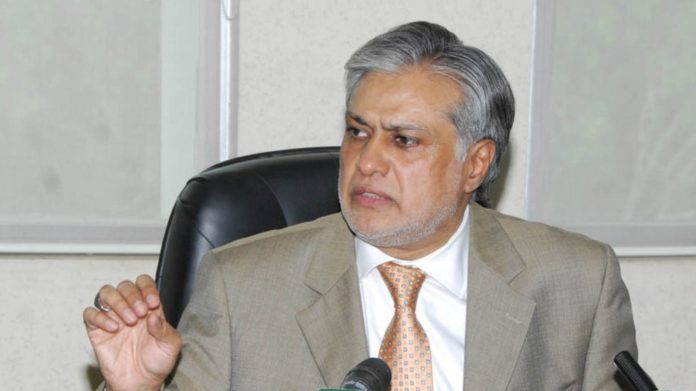With uncertainty prevailing over the pending staff level agreement between the Pakistan government and the International Monetary Fund (IMF), finance minister Ishaq Dar on Thursday once again claimed that the accord would be reached within a few days.
Despite the finance minister’s assurances, the foreign exchange market reacted negatively with the rupee falling in value by 1.13% and anxiety prevailing within the country’s business community and salaried classes. Dar’s claim that the staff level agreement would “Inshallah be within the next few days” is not a new one. In fact, “right around the corner” has become a constant mantra for the embattled federal government.
Pakistan had been able to secure the last tranche of $1.17 billion back in August 2022 under the leadership of former finance minister Miftah Ismail. The disbursement had been achieved by ending a massive fuel subsidy introduced by former prime minister Imran Khan and by agreeing to other terms of the IMF. The state bank at the time had more than $8 billion in foreign reserves.
In September 2022, however, Ishaq Dar took charge of the finance ministry and further negotiations with the IMF took a different turn. Dar, who during a television interview said “he knew how to deal with the IMF” since he had been doing it for decades, decided to artificially keep the price of the rupee high.
However, this strategy failed within a few months and by January 2023 Pakistan was staring down the possibility of default. The country began facing a shortage of forex reserves that has led to a curb of imports and skyrocketing inflation. That is when the promises of “good news” in the next few days began.
In the last two months alone, this promise has been repeated at least four times either by the finance minister or other ranking members of cabinet. In January 2023 Prime Minister Shehbaz Sharif announced that the IMF team would arrive in Pakistan in “2-3 days” to finalize the ninth review for disbursement of remaining $1.1 billion of the $6.5 bailout package approved in 2019.
Since then Dar has been trying to keep his chin-up and convince the nation that we are out of the water, negotiations with the IMF have not been so simple. The IMF team left Pakistan on the 9th of February without signing a staff level agreement, since when the government has been scrambling to meet the fund’s demands and get the vital $1.1 billion released. On February 11th, the government bulldozed a mini-budget through the national assembly to placate the IMF and agreed to impose Rs 170 billion in additional taxes to meet the fund’s conditions.
In the meantime the government has been trying to receive loans from friendly countries to try and shore up forex reserves and avoid default. Pakistan has previously received a $700m loan from China to help in this regard.
Pakistan had been able to secure the last tranche of $1.17 billion back in August 2022, after the IMF approved the seventh and eighth reviews of the package. The state bank at the time had more than $8 billion in foreign reserves but the agreements could not bring about macroeconomic stability. The ninth review is facing major roadblocks due to non fulfillment of conditions, specifically in the energy sector, untargeted subsidies, and pegging the foreign exchange at a lower rate than the market.
The cash-strapped nation felt an added pressure due to devastating floods that caused a damage of $30 billion. During this time foreign exchange reserves have dropped from $8 billion to a dangerously low of less than $3 billion. However, subsidies such as the Kissan package have also been slashed and the government has been trying to make concessions to receive the long-overdue tranche.




